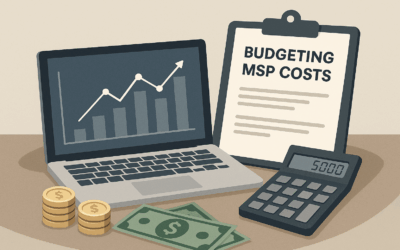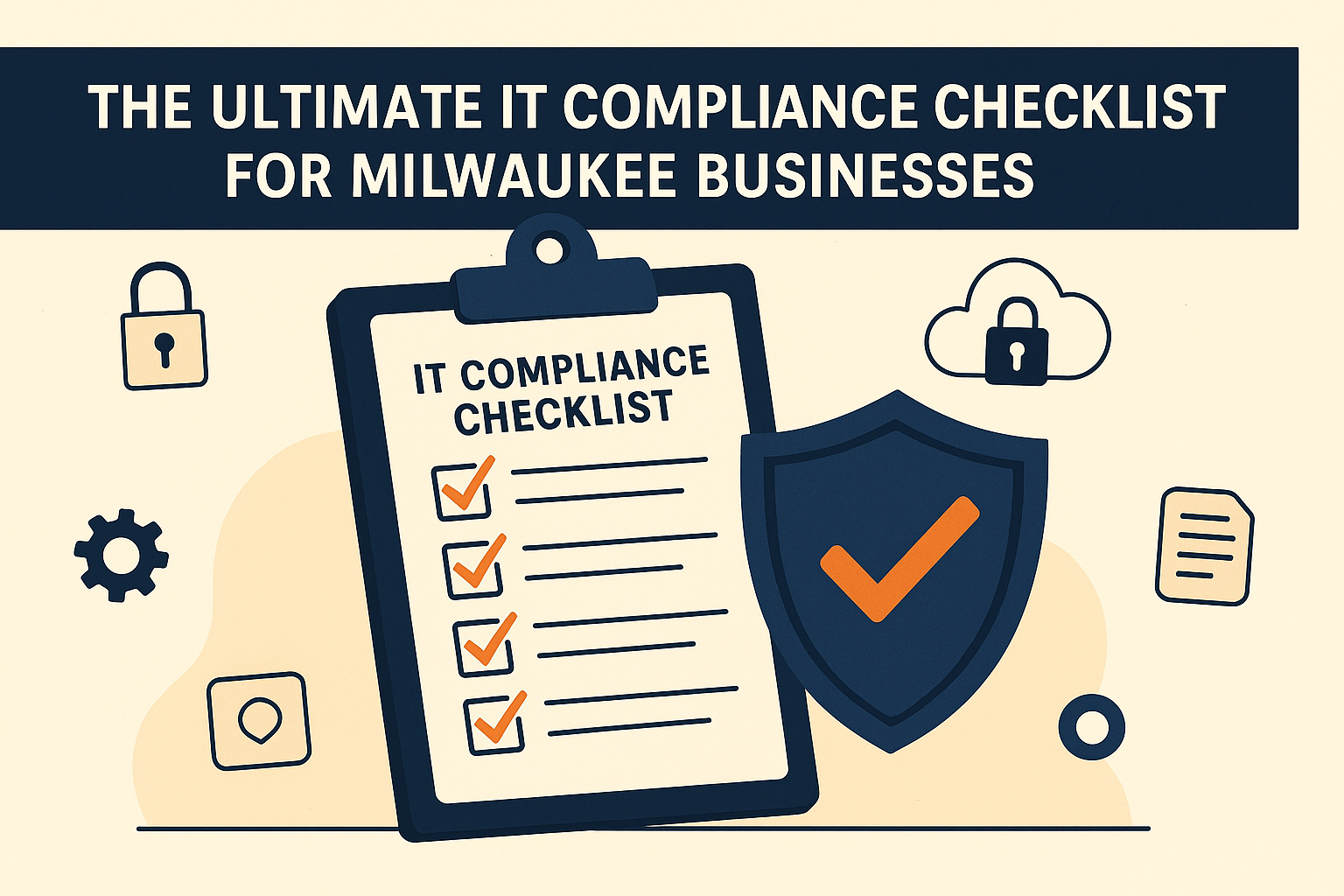If you’re still running Windows 10 in your business, you’re not alone—but the clock is ticking. With Microsoft ending support for Windows 10 on October 14, 2025, business owners and IT decision-makers need to weigh their options carefully.
Is it time to make the switch? What’s actually different in Windows 11? And how will that impact your team, your data, and your long-term IT planning?
Here’s a business-focused breakdown of Windows 11 vs. Windows 10—what’s new, what’s better, and why upgrading may not be optional much longer.
👨💻 Interface and User Experience: Modern vs. Familiar
✅ Windows 11:
- Centered Start menu and taskbar
- Rounded corners and sleek UI
- Optimized for touch, hybrid, and multi-screen setups
- Cleaner workspace with improved Snap Layouts
❌ Windows 10:
- Traditional, left-aligned Start menu
- Less consistent design experience
- Familiar but dated for modern work environments
Why it matters for business:
A more intuitive, streamlined workspace can reduce friction and increase productivity—especially in multitasking environments. If your team uses multiple monitors or hybrid setups, Windows 11’s UI will feel like an upgrade.
📚 Source: TechTarget
🚀 Performance: Faster, Smarter, More Efficient
✅ Windows 11:
- Faster resume from sleep
- Improved memory management
- Better battery life on laptops
- Optimized for Intel 12th/13th-gen processors
❌ Windows 10:
- Stable, but not performance-optimized for new hardware
- May feel sluggish on modern systems
Why it matters for business:
Faster systems = fewer help desk calls. For mobile or remote employees using laptops, battery efficiency can be a game changer.
📚 Source: Microsoft’s Business Comparison
🛡️ Security: A Major Leap Forward
✅ Windows 11:
- Built-in Zero Trust architecture
- Requires TPM 2.0 and Secure Boot
- Enhanced phishing protection
- Microsoft Defender SmartScreen integration
❌ Windows 10:
- Lacks several hardware-based protections
- No TPM requirement
- More vulnerable to modern threats
Why it matters for business:
Cybersecurity threats are getting smarter—and more expensive. Windows 11’s mandatory security features aren’t just fluff. They’re designed to actively prevent breaches.
➡️ If you’re handling sensitive data or working under compliance regulations like HIPAA or CMMC, this is huge.
🔗 See how Centurion Data Systems’ cybersecurity & compliance services help businesses align IT with modern security standards.
🧩 Software & App Compatibility
✅ Windows 11:
- Supports most Windows 10 apps
- Adds Android app compatibility via Amazon Appstore
- Better integration with Microsoft 365 and Teams
❌ Windows 10:
- Broad compatibility with legacy apps
- No Android app support
Why it matters for business:
Most tools will work fine on Windows 11—but testing is key. The Android app compatibility is more of a perk than a core feature, but it does open up new possibilities. If you rely on legacy software, get help assessing compatibility first.
🔗 Our On-Demand IT Consulting can audit your apps before you upgrade.
🧰 Productivity & Collaboration Tools
✅ Windows 11:
- Snap Layouts and Snap Groups for multitasking
- Virtual desktops improved
- Built-in Microsoft Teams chat integration
❌ Windows 10:
- Basic virtual desktops and Snap Assist
- No native Teams integration
Why it matters for business:
Remote work isn’t going away. Windows 11’s collaboration tools streamline communication, especially for hybrid teams using Microsoft 365.
📚 Source: Microsoft Business Features
🖥️ Hardware Requirements: The Upgrade Barrier
✅ Windows 11:
- Requires modern CPUs
- Requires TPM 2.0
- May not run on older systems
❌ Windows 10:
- Runs on older hardware
- Lower barrier to entry
Why it matters for business:
This is the pain point for many SMBs. If your current devices don’t meet specs, you may need hardware upgrades.
🔗 Not sure where you stand? Our Managed IT Services can run compatibility audits and plan phased upgrades.
📝 Pro Tip: Pair this with our Cloud Hosting & Backup to ensure you’re protected before you touch anything.
📅 Support & Lifecycle: The Deadline That Matters
❌ Windows 10:
- Support ends October 14, 2025
- No more security patches or updates
- Higher risk of breaches, downtime, and compliance failures
✅ Windows 11:
- Actively supported
- Frequent updates and feature enhancements
Why it matters for business:
This isn’t optional. Staying on Windows 10 past 2025 will expose your business to unpatched vulnerabilities and potential compliance violations.
📚 Source: The Verge
🔄 So, Should You Upgrade?
If you’re still on the fence, here’s a quick summary:
| Feature | Windows 10 | Windows 11 |
| 🛡️ Security | ❌ Basic | ✅ Advanced, Zero Trust |
| ⚡ Performance | ✅ Stable | ✅ Faster, Optimized |
| 👨💻 UI Experience | ✅ Familiar | ✅ Modern, Efficient |
| 🔧 App Compatibility | ✅ Excellent | ✅ Great + Android Support |
| 🧰 Productivity | ❌ Basic | ✅ Enhanced with Snap & Teams |
| 🖥️ Hardware Support | ✅ Older Devices | ❌ Newer Hardware Only |
| 📅 Long-Term Support | ❌ Ends 2025 | ✅ Active Support |
🛠️ Ready to Upgrade? Let’s Make It Easy.
If the move to Windows 11 seems like a project you should do—but aren’t sure how to start—Centurion Data Systems is here to help.
Whether you need:
- A full upgrade strategy
- Help selecting new hardware
- Support with data backups and cloud migration
- Or just a trusted IT partner to make it painless
🔗 Contact us today or check out our Client Center to schedule a compatibility assessment.



